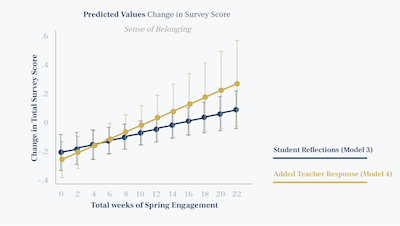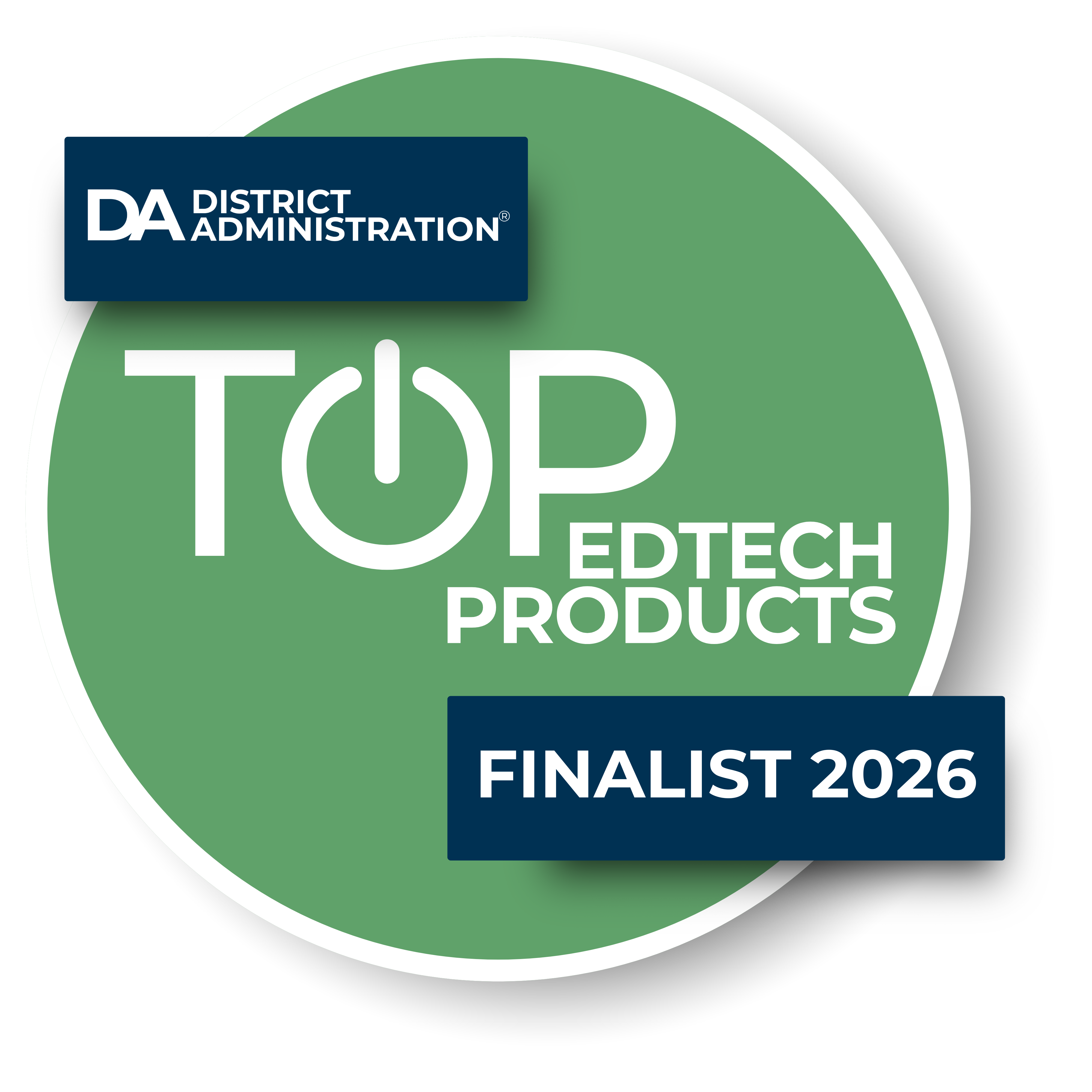Every Day Matters: Improving Attendance by Centering Belonging in MTSS


Why do students miss school, and what can we do about it?
More than just sharing theory or data, the work to increase attendance calls for a real shift in perspective, as well as tangible action. Together, this can empower schools to create cultures where every student believes they belong, shows up with confidence, and has the opportunity to thrive.
United in this mission, hundreds of K-12 leaders from across the country attended “Every Day Matters: Improving Attendance by Centering Belonging in MTSS,” a Sept. 17 webinar co-hosted by District Administration and Sown To Grow, which featured the following speakers:
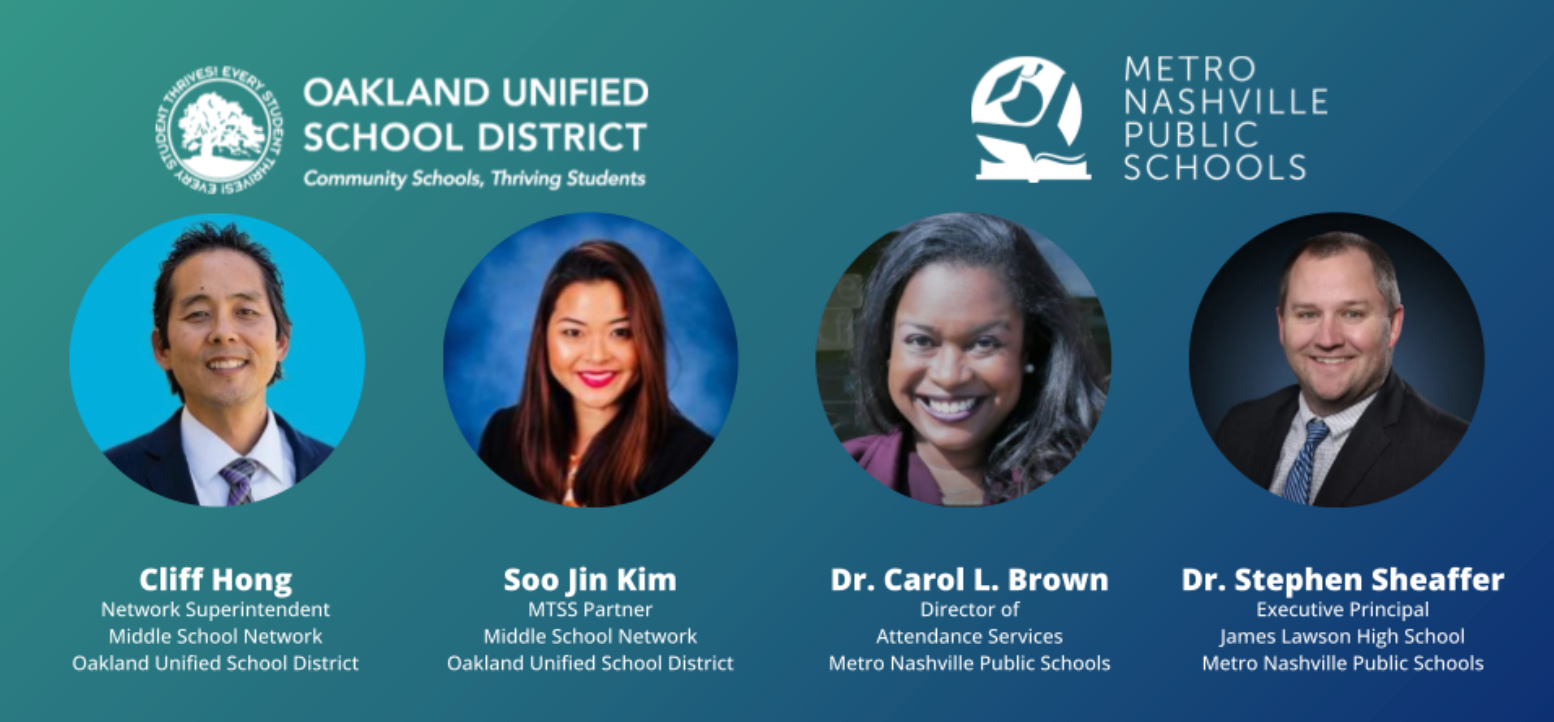

Moderator Dr. Monica Coverson opened the discussion with what she called a “simple but powerful truth” about the complex but incredibly common problem of chronic absenteeism.
“Attendance is not just a compliance issue,” she said. “It's really a reflection of how connected we are with students in our school communities.”
This laid the foundation for session objectives, offered deeper explanation for exactly why ‘every day matters,’ and teed up the incredible speakers who are successfully doing this work and driving impact.

Belonging at the Core
Research reinforces what most educators already know—relationships are not just a ‘nice to have,’ they’re a measurable driver for more successful outcomes. In fact, students who feel connected to a caring, trusted adult in their school show a 19 percent increase in regular attendance.
Dr. Coverson reviewed this concept and other impact results throughout her introduction, as well as compelling information about root causes to truancy and chronic absenteeism, and how proactive MTSS helps strategically target student needs.
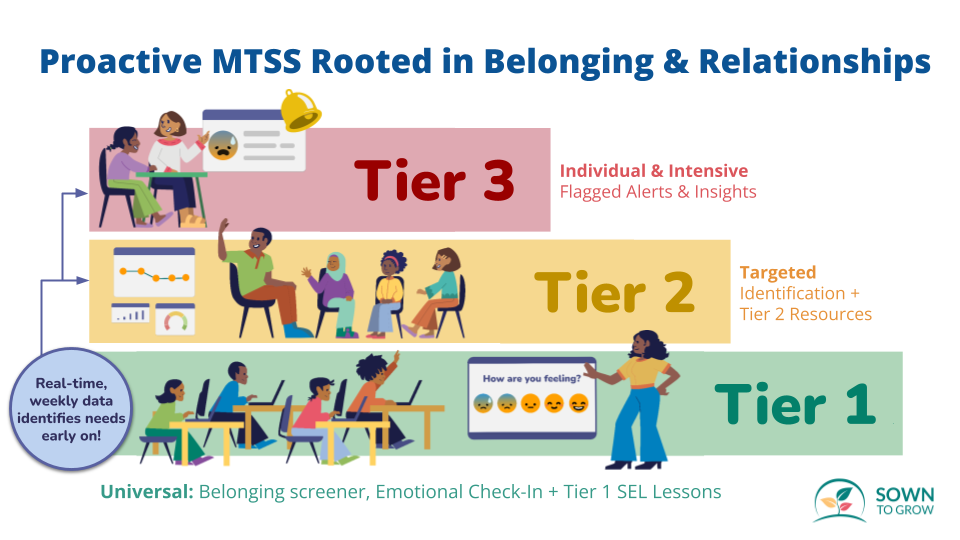
Optimal Outcomes in Oakland Unified School District
As a 20-year veteran of OUSD, Cliff Hong, Network Superintendent of the Middle School Network, explains how he and his team focus on data and sense of belonging in order to be “crystal clear on outcomes” and increase attendance.

This goes hand-in-hand with OUSD’s LCAP-aligned application of MTSS, which relies on leading versus lagging indicators to inform interventions.
Measurable Progress in Metro Nashville Public Schools
Another 20-year veteran of his own district, Dr. Stephen Sheaffer, Executive Principal of James Lawson High School, explained how MNPS’s ‘Every Student Known’ model resonates well with the session’s focus on belonging and connectedness.
More specifically, Dr. Sheaffer unpacked the details of the district’s MTSS-based Navigator Program, and reflected on why cultivating relationships is the key to making it work.
Along with this, Dr. Carol L. Brown, Director of Attendance Services, shared the impressive results of the “all hands on deck” program since its inception.
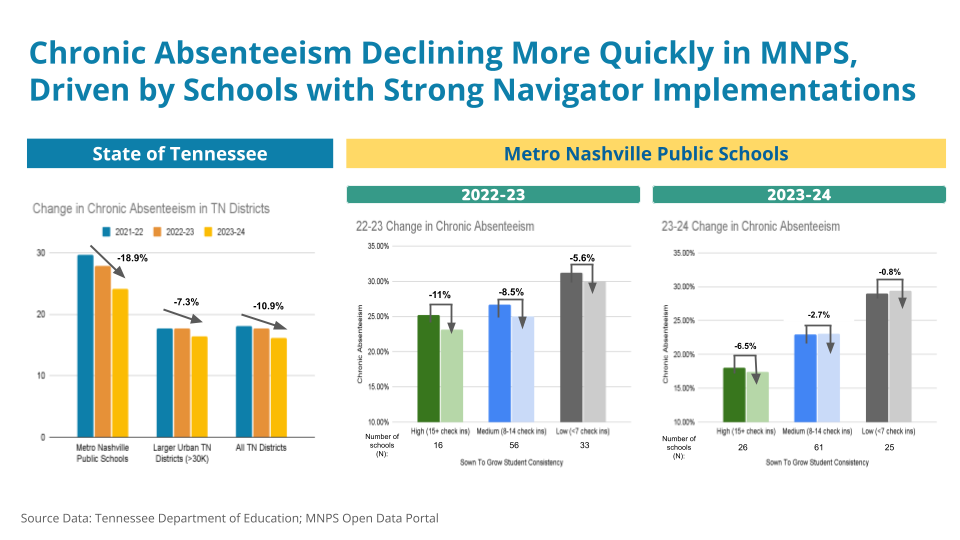
Moving Forward and Making Attendance Gains
The stories from OUSD and MNPS remind us that improving attendance isn’t about enforcing compliance—it’s about nurturing connection. When districts center belonging within MTSS and use data to guide action, they create schools where students feel valued, show up consistently, and have every opportunity to succeed.
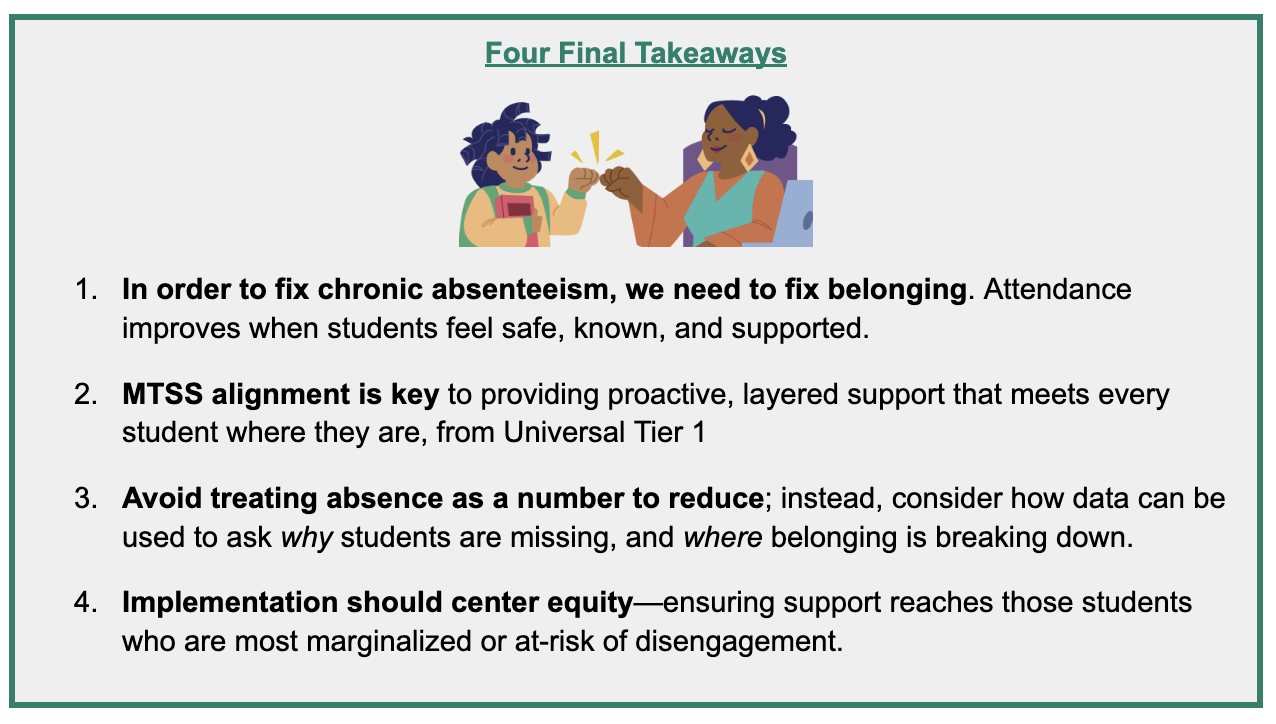
-----
Whether or not you were able to attend the event live, we hope you found this brief recap valuable, and took the opportunity to access the slides and recording. Feel free to click ‘Meet with us’ below if any of this resonates with you and your district’s goals for students this year.



.png)
.png)
.png)
